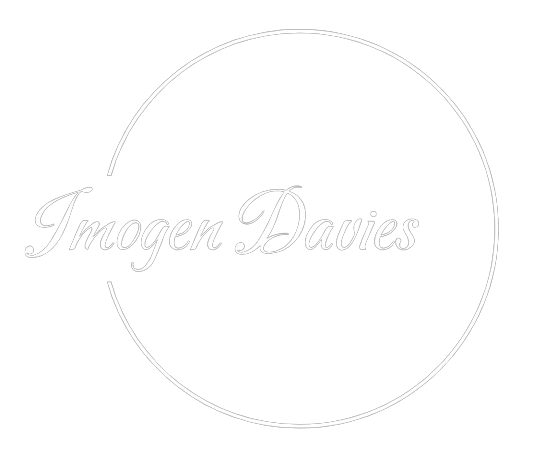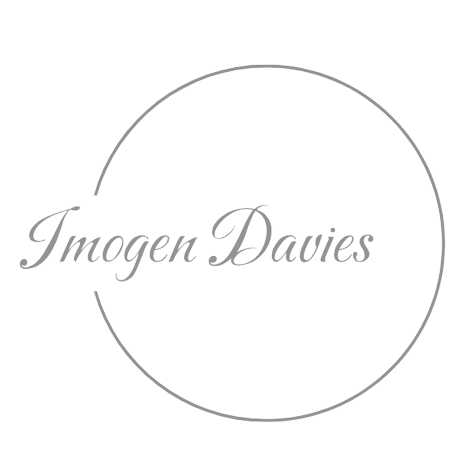“What even is SEO anymore?” and other questions you might be asking of the industry.
To say the SEO industry has been in a state of turbulence this year would be an understatement. We’ve faced:
- A Core update that lasted 45 days and encompassed rollouts to “multiple core systems”, making it “a more complex update” than usual core updates (Google)
- A Spam update coinciding with the launch of a Core update and lasting just short of 15 days (Google)
- Changes to the Helpful Content system as part of the above, with future announcements on Helpful Content updates no longer taking place as they will form part of the Core system (Google)
- Manual actions being released en masse following the release of the above changes (Search Engine Land)
- Changes to the Core Web Vitals to see INP officially replace FID (Google)
- AI Overviews begin to roll out to Search results (albeit with a rocky start) (Google)
- A massive leak on Google’s API documentation (Spark Toro)
- (Multiple) Issues with ranking systems (Google)
- An update to the Site Reputation Abuse policy (Google)
- More Core updates lasting over the usual 2 weeks (Google)
- Another Core update launching just after the last one finished (Google)
- Another Spam update just for good measure (Google)
In fact, as of the 22nd December, just short of 94 days this year have been taken up by Core updates rolling out (or 26% of the year) – the highest it has been in the last four years – so yeah, it’s been turbulent.
All of these changes, and more, have led to countless iterative shifts in how and where websites rank.
All, and more, leading the industry yet again into the age old debate of…
Is SEO dead?
And for what feels like the millionth time in my 10-year career, my answer remains unchanged – No, SEO is not dead, it is evolving.
It is evolving like it has been ever since the practice began. It is changing, it is growing, it’s coming into a new era, but it most certainly is not “dead”.
As long as there are people needing to search for things, SEO will live on.
“But, Imogen, what if where people search changes? Don’t you know about TikTok, or Amazon, or SearchGPT?!?!”
Oddly enough, I do know of these things, and yet my answer is still the same. Rogue, right?
Maybe it’s because Google still accounts for roughly 90% of the search engine market share worldwide (StatCounter, December 2024) and 94% in the UK.
Maybe it’s because SearchGPT, while not “traditional search”, is still “Search” and while it is in the early stages of adoption there’s actually a massive opportunity to start optimising for what appears in the results there as well as what takes place on Google. There’s a fantastic article (and slide deck) from Crystal Carter which looks at SEO specifically for LLMs which I think will serve as a good foundation for SearchGPT as more begin to use it (and other LLMs as they continue to develop).
Maybe it’s because platforms like TikTok are also just a different form of search (Social Search, or SSEO if you like) and so yes, while more and more people are moving towards using TikTok to aid in discovery and research, with Adobe finding 64% of Gen Z respondents saying they’ve used TikTok as a search engine (Adobe, April 2024, based on survey of 808 consumers across different demographics), at the moment it is just another factor in the journey – not the be all and end all.
The trouble is, as an industry, we get so caught up on what we believe “SEO” is not, that we forget what it actually is – optimising content to appear for searchers – and so whenever there is a shift in how or where people are completing that search, we run to the hills and claim the whole industry is under threat or, more accurately, it’s met its end.
And I call BS on that.
If a person changing how they complete a search because there are now easier, faster, or more useful ways to get the information they want has you throwing in the towel, then I ask you – what do you do every time Google changes how it does things?
What did you do when featured snippets came into play? Or when people started using Google Lens for visual searches? Or when Google launched Discover?
Did SEO die then? No, it evolved.
It evolved because people evolved. So if they are searching on ChatGPT, or TikTok, or Amazon, or whatever else might come into the fold and “kill the SEO industry overnight”, my question to you isn’t “is SEO finally dead?”, but “what are you going to do about it?”.
If we stop thinking that SEO has to be the (now extinct) “10 blue links” on a web search results page, and start thinking that SEO is actually optimising your content for search, whatever and wherever that search may be, it blows the industry open instead of driving it off a cliff. And that, I think, is exciting. That, is where the true performance will come in the future – SEO being “search”, not just “Google” or “web”.
What is SEO ‘now’?
At its most basic definition, “SEO—short for search engine optimization—is about helping search engines understand your content, and helping users find your site and make a decision about whether they should visit your site through a search engine.” (Google)
Nowhere in that definition does it say that this is only applicable to Google – it says “search engines”. And if we open that up a bit, we can see that actually things like TikTok, while not “search engines” in the traditional sense, do have a search engine function.. so does Amazon, and so does pretty much every marketplace and social platform you can think of. So we can start to break SEO down into different areas:
| Traditional Search Engines (“traditional” SEO) Bing Yandex Baidu Ecosia Yahoo DuckDuckGo | Marketplace Search Engines (MSEO) Amazon eBay Etsy AirBnB Rightmove Zoopla |
| Social Search Engines (SSEO) TikTok YouTube Meta (Instagram, Facebook) | Local Search Engines (LSEO) Google Maps Bing Places Apple Maps Waze |
| App Stores (ASO) Apple’s App Store Google’s Play Store Amazon’s App Store | LLMs (LLMO) SearchGPT / ChatGPT Gemini Perplexity Co-pilot |
All of them serve different needs, different audiences, and use different algorithms to return the best results at the time, so of course we can’t treat them all exactly the same, but we can take a lot of lessons from how traditional SEO has (or more to the point, has not) changed over recent years and keep those in mind when we’re exploring other search platforms.
Has there been a shift in fundamental SEO practices?
Honestly, no. The tactics people use have shifted immensely, but the actual foundations of SEO – the fundamentals of what makes a website get crawled and indexed – haven’t changed much at all.
For example, if we consult Google’s Search Essentials guidelines, provided to help webmasters ensure their web-based content is eligible to appear in the results, the foundation is pretty much the same as it always has been:
- Search engines need to be able to find your content (technical, links)
- Search engines need to be able to crawl and index your content where it is appropriate to do so (technical)
- Search engines need to be able to “read” and understand your content, determining the relevance to a user’s search (technical, content)
- Search engines need to be able to assess the value of your content for the reader, determining whether you deserve to appear in the top positions where most traffic is generated (content)
- Search engines need to be sure that your website is serving the user needs appropriately, leaning on a myriad of signals to determine engagement (content, links)
While the actual content within the guidelines may have changed through the years and been updated to bring them more in line with current search behaviour, the underlying factors of search have stayed constant – make your site crawlable, indexable, and appropriate for what the user needs.
Now, every single one of those areas has a myriad of different tactics and views and “best practices” on how to achieve them that depend entirely on your own situation, what you are trying to achieve, and what is weighted more heavily in your specific sector.
- YMYL sector? You’ll need to focus a lot more on making sure your content is accurate, helpful, and well-backed by authoritative research and sources.
- Local store? You’ll need to pay more attention to what’s going on in location-specifc search results and the coveted map pack positions.
- E-commerce sector? You’ll need to pay more attention to the technical setup of your site to make sure search engines can reach all of your different products and variants.
Add to that, that the competition for space on the first page is possibly at the highest it has ever been, and you’ll see people trying anything they can think of to give them an edge. But if we look at it, I mean really look at it, the evolution of tactics is all still centred around one thing: Getting users to click through to your site.
And now, there’s a lot more opportunity for how and where that happens – we’re not confined to the “10 blue links” of the past anymore, quite the opposite, in fact. For any given search, you could expect to see a first page made up of:
- Ads (obviously)
- Standard organic listings
- Featured snippets
- People also ask
- Rich snippets
- Map (local) packs
- Video carousels
- Image packs
- Knowledge panels
- Discussions and forums
- Top stories
- And now AI Overviews
As well as a tonne of different combinations and more SERP features being tested all the time.
That is a massive amount of opportunity to get your website into at least one of the available organic slots on the first page just on traditional search alone. If you add all of the other organic platforms into the mix you’ve got hundreds if not thousands of opportunities to go after.
Each of those elements has its own sub-ranking systems, each of which will take significant effort to optimise for, and each giving a different level of pay-out at the end of it depending on how you quantify results. So, while the foundations haven’t changed much at all, all of the new features and opportunities coming into play have fundamentally changed “how” people carry out SEO activity to get the best performance in their focus areas – be that a focus on specific elements of Search e.g. standard listings/featured snippets/AI Overviews, or specific tactical areas e.g. technical/content/links.
The difficulty in SEO now isn’t just getting ranked in traditional Search, it’s getting ranked in the search systems your audience is using – as that changes, your strategy needs to change and the tactics you use along with it.
So, when does SEO cease to exist?
When the user tells you.
I know, that’s vague as anything but stay with me.
SEO serves different purposes:
- Help people discover your content
- Get people engaging with your content
- Get people coming back to your content
- Get people converting because of your content
Now, if a user finds your content in the search results and clicks through to your site, you want them to engage with it and find it useful enough that they will either come back to you for another search, or convert in whatever form that may take (contact form, sale, phone call etc).
But if they don’t engage with it, or don’t find it useful, chances are they return to the search results and click on a different website.
If they still can’t find what they’re looking for, they may do another search, and now the chances of them clicking back through to your site on that second search are lower (even if you rank in the top positions) because they’ve already had a bad, recent, experience on your site.
In that instance, the user has effectively told you you have failed to meet their needs. Your SEO strategy stopped working the moment they clicked through to your site. And nobody wants that – you don’t want it, your boss certainly doesn’t, and the user absolutely doesn’t.
SEO isn’t just what happens in the search results, it’s what happens when people actually view your content, too. If too many users leave your site without properly engaging with it, we know now that Google uses that information to feed back into their own quality ranking systems and you’ll see drops in rankings because you’re not serving the user needs (shout out to Mark Williams-Cook for his investigative work here and the fantastic Search Norwich talk on Improving SEO with conceptual knowledge).
User behaviour can, and will, dictate how successful your SEO performance is so SEO consultants, strategists, and executives of today need to be factoring that into every single thing they are doing – you might see short-term wins by continuing to just use tactics that have worked previously, but you won’t get the long-term benefits now without it.
SEO as a practice won’t stop existing just because new platforms are entering the search ecosystem, but your SEO strategy (and performance) will stop existing if you don’t adapt to where your users are searching from and how they are engaging with your site.
Where will SEO go in 2025?
As an industry, we’re hopefully going to see a lot more diversification in SEO strategies that actually align with individual business needs instead of blanket approaches.
By that, I mean we’re not necessarily just going to focus on traditional SEO – Google, Bing etc. – but start looking at where the audience is spending their time and then building strategies based on that data.
SEO for a long time has not been a one-size-fits-all practice – every strategy needs to take individual needs of the business into account and then build a focused approach to drive performance in that area. If more and more people are looking outside of Google, or even just traditional search engines, to complete their research and possibly even their purchases as well, then we need to start looking at how that affects our clients.
I think we’ll see a lot more SEO strategies starting encompass different platforms as part of their SEO offering – traditional, social, marketplace, local, app stores, and LLMs – to start meeting audiences where they are actually searching instead of just sticking to traditional search engines because that’s how it’s always worked. But just like not every marketing channel is applicable for every business, not every search platform will be either, so the job of ‘good’ SEOs in 2025 will be to work out which platforms they need to put their efforts into and then how to do that effectively for their clients.
The flip side of this is that there is going to be a knowledge gap to close – what works on one platform might not work on another – so I think we’re also likely to see a lot more specialist consultancy work being done e.g. agencies focusing on traditional SEO, or consultants focusing on LLM optimisation, and really sticking to that service at least while the landscape settles to avoid a “too many chefs” situation.
Ultimately, though, I don’t see the fundamentals changing any time soon – sites still need to be crawled, indexed, and assessed for quality to rank – but I do think tactics will continue to evolve as the needs (and behaviour) of the user does.
My hope for 2025 is that Behavioural Search will feed the foundation of SEO strategies – really tapping into the why, what, and how of user behaviour – which will then feed the tactics needed to fuel performance. Whether that comes true or not is up to us as an industry and whether we can finally put the “is SEO dead” debate to rest.


